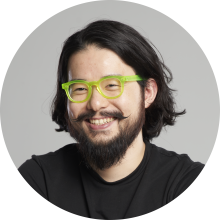Design for Longevity (D4L): Service Innovation through System Thinking
Thursday June 20th, 2023
People now not only live longer but also want to be healthier when they age due to more advanced emerging technologies, socioeconomic changes, education platforms, healthcare systems, and other socioeconomic factors. In addition, the meaning of time for the public has shifted and the concept of retirement has been redefined. We no longer just look at people’s age to discuss their needs; instead, we are focusing on the stage of life people are in to understand their desire dynamically and to improve their quality of life.
For most people, the term age can mislead them to view it merely as a number. However, the term stage might more precisely describe people’s lifestyle: their life conditions and life span. But what does longevity mean for designers and design leaders? The concept of design for longevity (D4L) has recently played a critical role in our society. D4L is not about adding labels for older adults on the products we design. D4L is also not only talking about how the new fabrication technologies can make the material last longer. D4L is an experimental research topic that contains more than we can imagine.
Collaborating with MIT AgeLab and MIT Ideation Lab, we explored using tangible design artifacts, service design frameworks, and system thinking to transform financial planning services to make them more inclusive and enjoyable as an example to discuss and reflect the concepts, applications, and value of D4L.
Learning Takeaways
- Understand and appreciate the concept of Design for Longevity (D4L)
- Leverage the value and process of applying human-centered design through four core stages: inspiration, ideation, prototyping, and implementation
- Demonstrate how to combine the typical design process with the applied research and system thinking.
Sheng-Hung Lee's Bio
Sheng-Hung Lee
- Ph.D. Researcher and Designer at Massachusetts Institute of Technology (MIT)
- Board Director at Industrial Designers Society of America (IDSA)
Sheng-Hung Lee is a maker, MIT AgeLab Design Director and Ph.D. researcher, MIT xPRO course experience strategist, MIT Office of Sustainability fellow, MIT Governance Lab (MIT GOV/LAB) curriculum designer, and Board Director at IDSA. He is inspired by multiple domains of knowledge and perspectives, and he thrives on creating new value for clients on multi-disciplinary teams while working at IDEO and Continuum. He is trained as an industrial designer and electrical engineer, and his approach to problem-solving is influenced by his passion for how design and technology impact and can be integrated into society. He has been invited to be a jury member for multiple international design competitions including International Design Excellence Awards (IDEA), Spark Design Award, IDA Award, Golden Pin Design Award, and A’ Design Award and Competition.
Lee graduated with a dual Master’s degree (Hon.) at MIT Integrated Design & Management (IDM) and MIT Department of Mechanical Engineering, USA. He co-lectures for the MIT graduate course (11.547/SCM 287 Global Aging & The Built Environment). He was invited as a guest reviewer for the MIT graduate course (15.783/2.739 Product Design and Development). Lee was also invited as a team lab instructor for the MIT undergraduate course (2.00 Introduction to Design). In addition, Lee co-taught and co-led the MIT design course during MIT IAP, Independent Activities Period.
His work has won prestigious awards including IDEA (Gold), iF Award (Gold), Braun Prize, Core77 Design Award, Red Dot (Best of the Best), Spark Design Award, and European Product Design Award (Gold). His works have also been showcased in Dubai Design Week, Venice Design Week, Cooper Hewitt Museum, and MIT Wiesner Student Art Gallery. In 2019, Lee won a designer in residence scholarship sponsored by the German government, EMMA Creative Center, and Pforzheim University to stay and exhibit his design in Stuttgart. He is a member of World Design Organization (WDO), Asia Designer Communication Platform (APD), Taiwan Society of Technology and Sociology, Phi Tau Phi Scholastic Honor Society, and China Technical Consultants Inc. He taught product design at Fudan University Shanghai Institute of Visual Art and Detao Masters Academy as an adjunct Associate Professor from 2015 to 2019.
